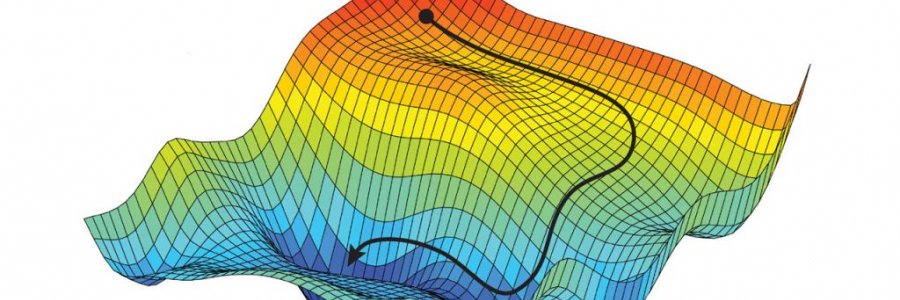Il concetto di ottimizzazione gioca un ruolo chiave quando si parla di machine learning e deep learning in particolare. Lo scopo principale degli algoritmi di deep learning è quello di costruire un modello di ottimizzazione che, tramite un processo iterativo, minimizzi o massimizzi una funzione obiettivo $J(\theta)$ denominata anche loss function o cost function.
I più popolari metodi di ottimizzazione possono essere suddivisi in due categorie: metodi di ot…
Search the blog
Categories
- Tutorials (16)
- Discussions (12)
- Announcements (4)
- Tutorials (English) (4)
- Articles' summaries (3)
- Discussions (English) (2)
- Focus-on (1)
- Reviews (1)
- Discussion (1)
Archives
Popular Tags
- deep learning (11)
- pytorch (9)
- reti neurali (5)
- google (4)
- jit (4)
- tensorflow (4)
- ottimizzazione (4)
- rete neurale (3)
- time series (3)
- keras (3)
- reti convolutive (3)
- pipeline (2)
- sklearn (2)
- autodiff (2)
- automatic differentation (2)
- reverse-mode (2)
- derivate (2)
- differenziazione (2)
- model selection (2)
- cross validation (2)
- c++ (2)
- numpy (2)
- vmap (2)
- caffe (2)
- compiler (2)
- jax (2)
- codemotion (1)
- bias (1)
- discrimination (1)
- fairness (1)
- iaml (1)
- database (1)
- iperparametri (1)
- autograph (1)
- head (1)
- multi-task (1)
- learning (1)
- novità (1)
- dev summit (1)
- custom estimator (1)
- hyperopt (1)
- goodfellow (1)
- nlp (1)
- dati mancanti (1)
- transformer (1)
- attenzione (1)
- robocop (1)
- yolo (1)
- object detection (1)
- bayes (1)
- autoencoders (1)
- variational (1)
- eager (1)
- imputazione (1)
- CIFAR (1)
- word embedding (1)
- MNIST (1)
- immagini (1)
- classificazione (1)
- kpi (1)
- reprogramming (1)
- adversarial (1)
- browser (1)
- javascript (1)
- reti ricorsive (1)
- reti ricorrenti (1)
- ftth (1)
- adversarial example (1)
- management (1)
- robotica (1)
- ocr (1)
- focus (1)
- iphone (1)
- python (1)
- face id (1)
- momento (1)
- adam (1)
- neuroscienza (1)
- onde cerebrali (1)
- torchvision (1)
- latin (1)
- pretrained (1)
- rete convolutiva (1)
- autograd (1)
- swish (1)
- attivazione (1)
- checkpoint (1)
- tensori (1)
- variabili (1)
- lineare (1)
- regressione (1)
- convolutional networks (1)
- Vatican (1)
- project (1)
- kernel (1)
- ICLR (1)
- ipotesi (1)
- sparsità (1)
- funzionale (1)
- functional (1)
- adversarial attack (1)
- kmeans (1)
- analysis (1)
- clustering (1)
- Google (1)
- regression (1)
- JAX (1)
- gaussian process (1)
- ensemble (1)
- boosting (1)
- gradient (1)
- semi-supervised learning (1)
- document classification (1)
- graphs (1)
- variables (1)
- linear (1)
- k-NN (1)

